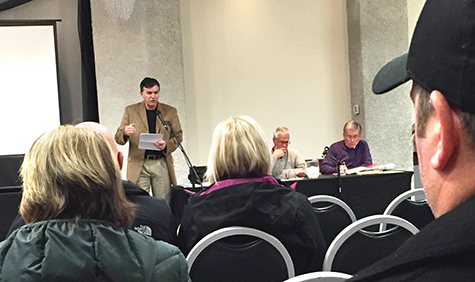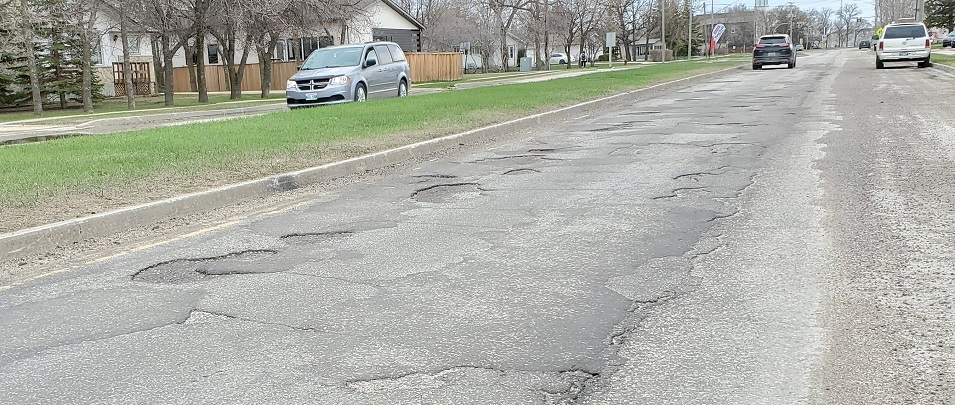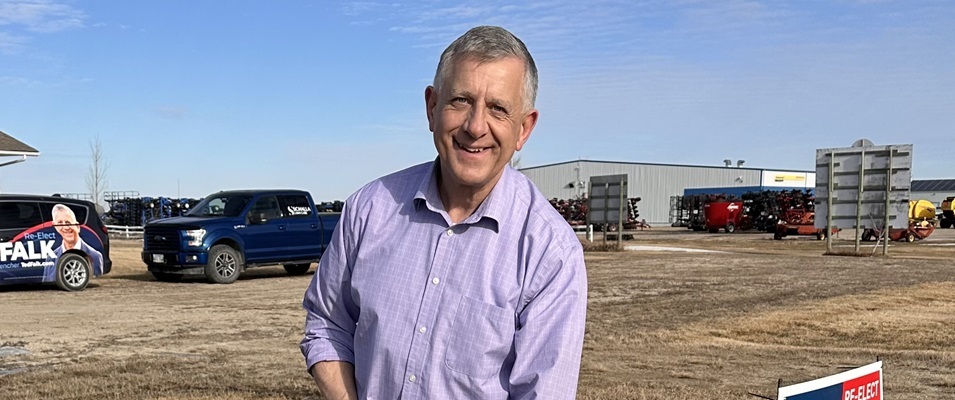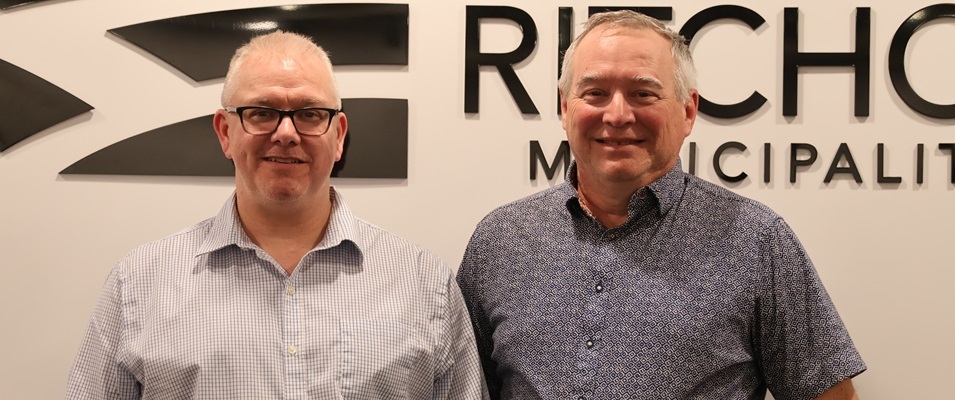
On January 18, Niverville Town Council held a meeting with business owners and residents to discuss the scope of the Main Street/Fifth Avenue Water Main Project. Approximately 50 people attended the meeting, which was hosted by Chamber of Commerce President Melvin Buhler. Mayor Myron Dyck and Bill Brandt, a consulting engineer from WSP Engineering, led the discussion.
The cost of the $2 million water project will be split three ways: the federal and the provincial government are contributing two-thirds of the project under the Building Canada Fund grant, the town is contributing $100,000, and the remaining $600,000 will be covered by property owners based on the length of the waterline fronting their properties.
The amount each property owner will pay is based on a per-foot frontage fee, approximately $53.44 per foot. This fee does not include the cost of the meter and hooking up to individual plumbing systems. Town Council has given property owners two payment options: they can either pay a lump sum within 30 days of the project completion or pay it over a 20-year term.
Days prior to the town hall meeting, business owners and residents in the project zone received letters outlining the costs they are expected to pay once the project is completed. For many, this had been the first time they heard anything about the proposed project.
“In the big picture, I think it’s great for the community as a whole. And it’s unfortunate that the letter that came out came across so sternly and bluntly,” says Ferd Klassen, owner of Niverville Autobody. “It left you with the misconception that this is a done deal. My opinion is that council isn’t as transparent as they promised they would be this last election.”
During the meeting, a few points of discussion came as a surprise to council members. Brandt confirmed that frontage fees will cover the cost of the pipes running from the main lines into properties. The town initially thought the fees only covered the cost of the main lines. It also seemed as though Town Council had not given proper consideration to the development of a policy that would require property owners to connect to the service.
The confusion on council’s part was somewhat disconcerting to some attending the meeting.
“They could have been better prepared. It seemed that we stumped them when we asked the question asking if the fee included the hookup. It was a simple question they should have been prepared for,” Klassen says. “They were caught off-guard which diminishes their credibility.”
The town’s plan is to start const-ruction this summer. The grant received from the provincial and
federal governments must be used before March 2017 and cannot be directed toward other infrastructure projects.
“The reason we are trying to get this moving is that we want to be able to put this project to tender and capture this construction season,” Dyck says. “The funds say this project must be done by March 2017 so there is a little urgency to this.”
Klassen does agree that this may be the right time to move forward on the project. “There could come a point in time where the province forces us to do it and, if there isn’t government money available, we’re 100 percent on the hook. Can you imagine the burden on people’s tax bills then? This is a very fair deal.”
According to Brandt, Niverville is the largest community in Manitoba without a universal potable water service. The Town of Niverville wants to change that.
“Council has set forward a ten-year master plan to be able to provide the service of water to the entire community,” Dyck says. “We are going to cont-inue to lobby all levels of government for funding.”
In the end, Klassen says that having access to town water will make his property more valuable should he ever decide to sell and he says it’s an important investment in the community.
“I wouldn’t mind seeing more commercial businesses coming to town. Do I want to see someone setting up competition for me? No, but inevitably it will happen,” Klassen says. “We are one of the last comm-unities of our size to have town water. Why do you think a lot of commercial businesses that are looking to relocate pass Niverville by? There’s no water.”
As for future correspondence from Town Council, Klassen would like to see improved communication.
“I would hope there would be more transparency and better communication. To send a letter ten days before a meeting is just not enough,” Klassen says. “I’m glad to hear they are considering having more meetings in the future. I believe they should sit down with the businesses and residents directly involved and deal with it that way.”




















